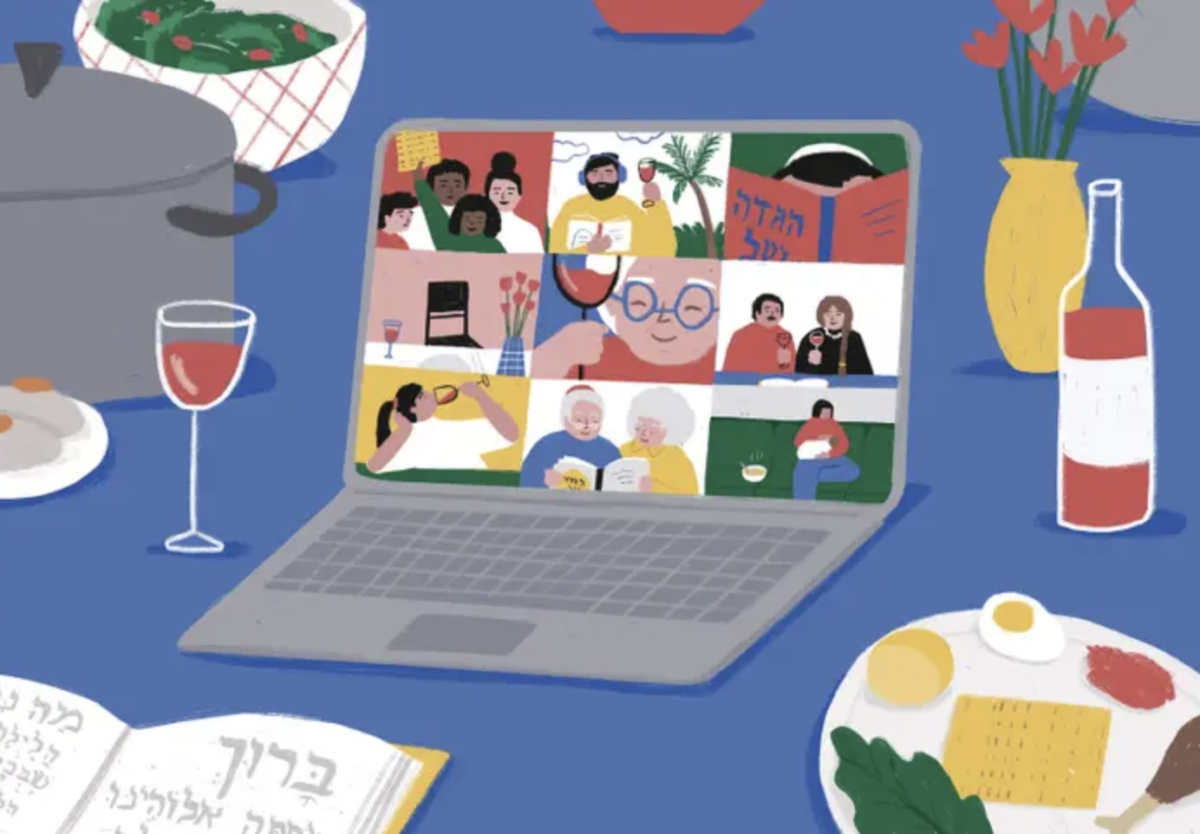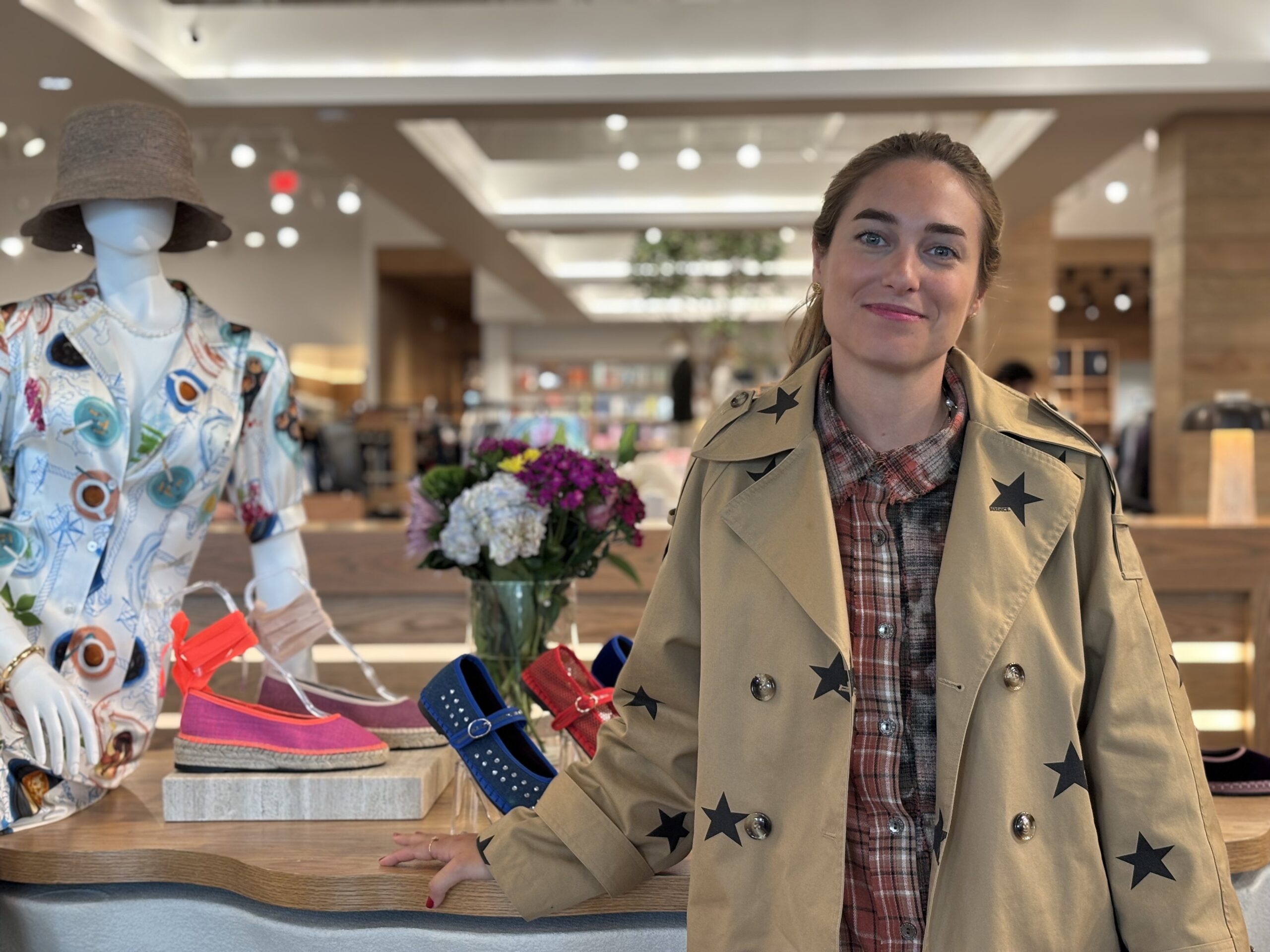By Lorena Koppel
Editor’s Note: Social distancing and self-isolation have tested our creativity with keeping in touch with friends, co-workers and loved ones. Easter and Passover were the first holidays that certainly challenged traditions and family gatherings. Though it is unfortunate we were not able to celebrate together, one of Latinitas’ very own Media Chica gives us insight on celebrating together digitally.
AUSTIN, Texas — “Who ate the lamb shank for the Seder plate?” My dad’s cry echoed through the house from the refrigerator. Apparently, due to the recent shortages in the grocery store due to COVID-19, he hadn’t been able to find a lamb shank and had instead saved a chicken leg for the traditional Passover meal. He’d also forgotten to mention that fact to any of us. I ate it for lunch.
Passover is the Jewish remembrance of the Israelites fleeing the Egyptian oppression. My dad’s side of the family is Jewish from Brooklyn, and my maternal side of the family is Catholic with Mexican heritage, so I get a bit of both traditions. “We’re like Cokie Roberts’ family,” my Jewish grandma remarked. Since my paternal side of the family lives far away, normally, Passover is a special time for us to celebrate together in person. This year, in light of COVID-19, we decided to do a Zoom call together.
To say #SocialDistancing changed the dynamics of Passover would be an understatement. Technical difficulties don’t take holidays off, and the audio cutting out meant that I only got to hear my Jewish grandma read about half of the Haggadah —though I heard it loud and clear when my grandpa shouted “Oy Gevalt,” a Yiddish exclamation for frustration. Our dogs barked at each other from two different screens, we subbed mustard for every missing item on the Seder plate, and my uncle changed his Zoom background to a stock photo of a nostril while my grandma discussed the Ten Plagues. Coronavirus made the whole thing feel like a fever dream.
Still, some things didn’t really change. My Catholic grandma passed on the bitter herbs and mostly stuck to matzo, unleavened flatbread. I consumed inhuman amounts of haroset, which is made of apples, wine, cinnamon, nuts, and deliciousness. We heard the same stories we do every year—both the ones about the Jewish people, and the ones our grandparents think are really funny. (“Did you hear the story about Jonas’ hip?” “Oh yeah, you told us a couple times.” “So he’s injured his hip, he needs surgery, and he says to the doctor…” “Oy Gevalt.”) My younger sister won the honor of finding the afikoman, the hidden matzo, under Mr. Pickle, the stuffed animal (or, really, the stuffed pickle), despite me technically finding matzo first because I went to the pantry and grabbed the box.
Most importantly, COVID-19 couldn’t strip away the heart of these traditions: we still got to spend time with each other, remind everyone how much we love them and make each other laugh so hard we cried. In the wake of the virus, taking the precautions we need to keep our communities safe means sacrificing our old concept of “normal,” and this is especially difficult when it comes to milestones and events that bring us joy. I celebrated Easter at home with my immediate family, and though we fought an epic battle in our backyard with cascarones, confetti eggs, I missed doing so with dozens and dozens of extended family members like we usually do.
In these times of uncertainty, it’s best to focus on the things that we are still able to do, and be flexible with the things we aren’t. Learning to laugh at ourselves is always a good way to make light of these situations. Besides, life during the Coronavirus outbreak is a practice in resilience, in testing the bonds of family, focusing on the things that give us joy, and finding ways to continue what’s important to us. After all, these traditions have been around for a very, very long time—this isn’t the first hardship they’ve weathered. The quarantine is temporary, but family lasts much longer.
Want to read more stories like this? Give us your feedback, here!
Latinitas Magazine is a project of Latinitas, a registered nonprofit. We are funded by readers like you, so please consider donating today. Thank you!











